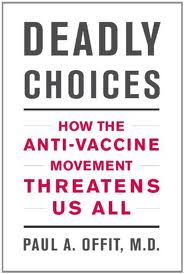March 15th, 2011 by Elaine Schattner, M.D. in Opinion, Research
No Comments »

Lupus, an autoimmune disease, [recently] turned up on the front page of the Wall Street Journal (WSJ). It cropped up, also, on the first page of the New York Times business section, and elsewhere. Scientific American published a nice online review just now. The reason is that the FDA has approved a new monoclonal antibody for treatment of this condition.
The drug belimumab (Benlysta), targets a molecule called BlyS (B-lymphocyte Stimulator). The newspapers uniformly emphasize that this drug marks some sort of triumph for Human Genome Sciences, a biotech company that first reported on BlyS in the journal Science way back in 1999. BlyS triggers B cells to produce antibodies that in patients with lupus tend to bind and destroy their own cells’ needed machinery, causing various joint, lung, liver, kidney, brain, blood vessel and other sometimes life-threatening problems. So if and when Benlysta works, it probably does so by blocking aberrant autoimmune B-cell activity.
The newspapers don’t give a lot of details on the drug’s effectiveness, except that it appears to help roughly one in 11 patients, and the main benefit may be that some lupus patients on Benlysta can reduce their use of steroids, which have long-term and toxic effects on many organs. The most recent major medical publication on a trial on the drug came out in the Lancet two weeks ago.
Some reported caveats are that the drug has not been adequately tested or approved for patients with severe kidney or neurological manifestations of the disease, and that its activity, marginal as it is, appears to be less in patients of African heritage based on trials completed thus far. Additional trials are in the works.
The drug is expensive, to the updated tune of $35,000 per year. According to the WSJ: “Estimates of how many Americans are affected range from 161,000 to 1.5 million.” (How’s that for a wide ballpark figure? Likely a function of how hard it is to define and establish diagnosis for this disease, which anticipates how hard it will be to measure this drug’s effects — see below.) The same WSJ piece says analysts expect the drug to become a blockbuster, with annual sales eventually topping $1 billion. Read more »
*This blog post was originally published at Medical Lessons*
February 17th, 2011 by RyanDuBosar in Health Policy, Research
No Comments »

Less than one in three primary care practices offer all 10 recommended adult vaccines, citing a variety of financial and logistical reasons.
Researchers sponsored by the Centers for Disease Control and Prevention sampled 993 family physicians and 997 general internists. Of the respondents, 27 percent (31 percent of family practitioners and 20 percent of internists) stocked all 10. Results appear in the Feb. 17 issue of the journal Vaccine.
The 10 vaccines were hepatitis A; hepatitis B; human papillomavirus vaccine (HPV); combined measles, mumps, and rubella (MMR); meningococcal conjugate vaccine (MCV4); pneumococcal polysaccharide (PPSV23); tetanus diphtheria (Td); combined tetanus, diphtheria, and pertussis (Tdap); varicella; and zoster.
Of the responding practices, two percent plan to stop vaccine purchases, 12 percent plan to increase them and the rest had no plans to change their vaccination stocking habits. But physicians who identified themselves as their respective practices’ decision makers for stocking vaccines were more likely to decrease the number of different vaccines stocked for adults (11 percent vs. three percent; P=.0001).
The National Vaccine Advisory Committee, a group that advises the various federal agencies involved in vaccines and immunizations, arrived at even bleaker figures in 2009, reported the April 2009 issue of ACP Internist. For example, 62 percent of decision makers in practices said they had delayed purchase of a vaccine at some time in the prior three years due to financial concerns. And in the prior year, 16 percent of practice decision makers had seriously considered stopping vaccinations for privately-insured patients due to the cost and reimbursement issues. Read more »
*This blog post was originally published at ACP Internist*
January 31st, 2011 by Bryan Vartabedian, M.D. in Book Reviews, Opinion
No Comments »

 A friend suggested she was tired of hearing about vaccines. Her comment and our subsequent conversation seemed to reflect an important shift in parent sentiment: The conversation about vaccines is beginning to get somewhere.
A friend suggested she was tired of hearing about vaccines. Her comment and our subsequent conversation seemed to reflect an important shift in parent sentiment: The conversation about vaccines is beginning to get somewhere.
While much of this was born of the mainstream media’s newfound realization that the vaccine-autism connection was cooked, some of this is due to the tireless work of those like the Children’s Hospital of Philedelphia’s Dr. Paul Offit who get the story right.
As part of his passionate agenda to expose vaccine truths, he’s published “Deadly Choices: How the Anti-vaccine Movement Threatens Us All” (Basic Books, 2011). For those looking to understand the origins of anti-vaccine sentiment, read this book.
What struck me is the deep history behind the anti-vaccine movement. From Jenner’s smallpox fix to modern-day MMR struggles, Offit draws fascinating corollaries surrounding immunization that seem to defy the generations. Vaccine resistance was not born of Andrew Wakefield, but broader concerns rooted in religion, individual liberty, fear and propaganda. “Deadly Choices” puts the anti-vaccine movement in a historic sequence that reads like good suspense. I couldn’t put it down. Read more »
*This blog post was originally published at 33 Charts*
January 30th, 2011 by Glenn Laffel, M.D., Ph.D. in News, Research
No Comments »

 Although cocaine use has declined steadily since its peak in the early 1980s, public health officials estimate that about 7 million Americans used the drug at least once last year. Many of these folks are addicted to the drug, and its intense, short-lived euphoric effects mean the addiction is terribly difficult to overcome.
Although cocaine use has declined steadily since its peak in the early 1980s, public health officials estimate that about 7 million Americans used the drug at least once last year. Many of these folks are addicted to the drug, and its intense, short-lived euphoric effects mean the addiction is terribly difficult to overcome.
Addiction specialists believe existing treatment paradigms for cocaine addiction can be enhanced by a vaccine that prevents the drug from crossing the blood-brain barrier, thus blunting its euphoric effects. Scientists have worked hard to develop such a vaccine, but have had limited success so far.
About a year ago for example, Thomas Kosten and colleagues at Baylor reported partial success in a human trial of a cocaine vaccine. In that trial, 38 percent of subjects who received all five shots in the vaccine series achieved sufficient antibody levels to blunt the effects of the drug. In that subset, 53 percent of the subjects stopped using cocaine, meaning that overall, the vaccine worked about 20 percent of the time. Read more »
*This blog post was originally published at Pizaazz*
January 24th, 2011 by RyanDuBosar in News, Research
No Comments »

Eighteen percent of American believe that vaccines can cause autism, 30 percent remain unsure, and 52 percent of Americans don’t think vaccines can cause autism, according to public opinion polling done after research linking vaccines to the condition was reported as fraudulent.
While 69 percent of respondents said they had heard about an association between vaccination and autism, 47 percent knew that the original Lancet study had been retracted, and that recently the research is reported as being fraudulent.
The poll also found that 86 percent of parents who have doubts about the vaccine said that their children were fully vaccinated, compared to 98 percent of parents who believe vaccines are safe, and that 92 percent of children are fully vaccinated.
The poll was conducted after news reports were published that said Andrew Wakefield, the lead researcher of the research linking autism to the MMR vaccine, had used faked data.
More than 20 studies since Wakefield’s have disputed the association between vaccination and autism.
The online survey of 2,026 adults from Jan. 11 to 13 was done by Harris Interactive and HealthDay. (AP/Fox News, CNN, BMJ, WebMD)
*This blog post was originally published at ACP Internist*

















